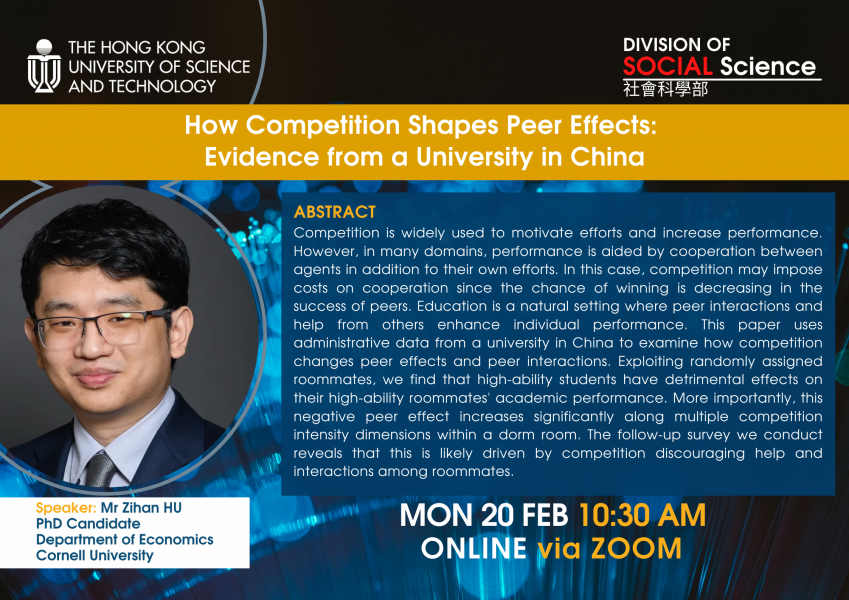Competition is widely used to motivate efforts and increase performance. However, in many domains, performance is aided by cooperation between agents in addition to their own efforts. In this case, competition may impose costs on cooperation since the chance of winning is decreasing in the success of peers. Education is a natural setting where peer interactions and help from others enhance individual performance. This paper uses administrative data from a university in China to examine how competition changes peer effects and peer interactions. Exploiting randomly assigned roommates, we find that high-ability students have detrimental effects on their high-ability roommates' academic performance. More importantly, this negative peer effect increases significantly along multiple competition intensity dimensions within a dorm room. The follow-up survey we conduct reveals that this is likely driven by competition discouraging help and interactions among roommates.
I am Zihan Hu, a Ph.D. candidate in the Department of Economics at Cornell University. I am also associated with the Brooks School of Public Policy (previously the Department of Policy Analysis and Management) at Cornell University. My research focuses on labor economics and development economics.
Remarks
- ZOOM link will be sent via email, for HKUST members ONLY
- Please use your HKUST ITSC account to join the zoom meeting.
- This meeting is being recorded. By joining, you are giving consent for this meeting to be recorded.

